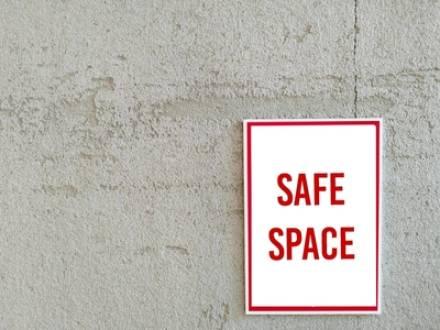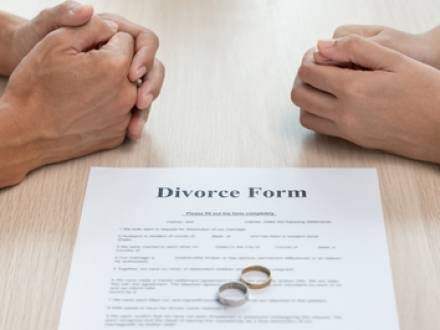630-462-9500
After Hour New Client Telephone Number 630-690-6077
1776 S. Naperville Road, Building B, Suite 202,
Wheaton, IL 60189
Recent Blog Posts
Can You Remarry Right After You Get Divorced?
Not so long ago, many states had restrictions on remarriage following a divorce. In some states, a divorced person was required to wait up to a year before he or she could remarry. Today, nine states, plus D.C., have laws that limit the right to marry after divorce. In Nebraska, you must wait six months to remarry unless your ex dies during that time.
Wisconsin also has a six-month waiting period; if you marry during those six months, your marriage is "voidable," which means it could be contested and only becomes valid when the six months are up. In Rhode Island, a remarriage within three months of a divorce is void, and in Alabama, a remarriage is void if it takes place within 60 days after the divorce – but valid if it legally occurs in another state (If you want to remarry the spouse you just divorced in Alabama, there is no waiting period).
In D.C., there is a 30-day waiting period following a divorce, and the same is true in Texas and Kansas. In the state of Illinois, you can legally remarry as soon as the ink is dry on your divorce decree. Since you can remarry immediately, the better question might be, should you remarry immediately? If you have questions regarding your divorce or a potential remarriage, a Wheaton, IL family law attorney can help.
Coping with Your First Winter Season After Divorce
 The first winter season after a divorce can bring unexpected challenges. The colder months, with shorter days and frigid temperatures, can intensify feelings of loneliness and uncertainty. Whether you are adjusting to co-parenting, managing seasonal depression, or simply finding new ways to spend your time, it is important to plan for both emotional and legal stability. An Illinois divorce attorney can help you navigate post-divorce matters such as parenting time, financial concerns, and agreement modifications.
The first winter season after a divorce can bring unexpected challenges. The colder months, with shorter days and frigid temperatures, can intensify feelings of loneliness and uncertainty. Whether you are adjusting to co-parenting, managing seasonal depression, or simply finding new ways to spend your time, it is important to plan for both emotional and legal stability. An Illinois divorce attorney can help you navigate post-divorce matters such as parenting time, financial concerns, and agreement modifications.
How Can You Emotionally Prepare for the Winter Season?
Winter can bring mixed emotions after a divorce. You may experience sadness over past routines, relief from an unhealthy marriage, or anxiety about the unknown. It is essential to acknowledge your feelings while taking steps to create a positive experience for yourself. It is also helpful to seek support and encouragement, whether it is through talking to friends, family, a therapist, or a support group. To combat seasonal depression, activities like yoga, walking, or fitness classes can help boost your mood. Other self-care activities, like reading, taking warm baths, or practicing meditation, allow you to prioritize your well-being and mental health.
Does an Order of Protection Really Help?
 When someone faces threats, harassment, or abuse, obtaining an order of protection may seem like the best way to ensure safety. However, many may wonder: does an order of protection really work? While an order of protection is a legally enforceable tool that can provide security, it is not a guaranteed solution to prevent harm.
When someone faces threats, harassment, or abuse, obtaining an order of protection may seem like the best way to ensure safety. However, many may wonder: does an order of protection really work? While an order of protection is a legally enforceable tool that can provide security, it is not a guaranteed solution to prevent harm.
In some cases, an order of protection successfully deters an abuser from making contact or engaging in further harm. In other situations, it may not be enough to stop an abuser from acting violently. If you are considering an order of protection, an experienced Illinois family law attorney can guide you through the process and help you take additional legal steps to stay safe.
What Is an Order of Protection in Illinois?
An order of protection is a court-issued directive that prohibits an abuser from engaging in certain behaviors like contacting or approaching the protected person. In Illinois, orders of protection fall under the Illinois Domestic Violence Act (IDVA) and are available to those experiencing domestic violence, harassment, or threats from a family or household member. This can apply to various circumstances, which include:
My Kid Doesn't Want to Go to Visitation. What Can I Do?
 Navigating custody and visitation issues while co-parenting after a divorce or separation can be challenging. It can become especially difficult if your child refuses to attend visitation with his or her other parent. If you find yourself in this situation, you might be unsure about what steps to take or what your legal obligations are. This sensitive situation requires balancing the best interests of your child, your rights, and the other parent's rights. An experienced Illinois family law attorney can help you better understand your legal rights and obligations while finding a resolution that works for everyone involved.
Navigating custody and visitation issues while co-parenting after a divorce or separation can be challenging. It can become especially difficult if your child refuses to attend visitation with his or her other parent. If you find yourself in this situation, you might be unsure about what steps to take or what your legal obligations are. This sensitive situation requires balancing the best interests of your child, your rights, and the other parent's rights. An experienced Illinois family law attorney can help you better understand your legal rights and obligations while finding a resolution that works for everyone involved.
Why Is My Child Refusing to Attend Visitation?
It is essential to understand the reasons behind your child's refusal to visit their other parent. Children may resist visitation for several reasons, including:
During a Divorce, Is Looking Through Your Spouse's Phone Illegal?
 During the divorce process, emotions run high, and suspicions may arise. It is not uncommon for people to wonder if it is legal to access their spouse's phone to gather evidence of an affair or even locate hidden assets. However, this question often leads to complicated legal and ethical considerations. For questions, concerns, or anything else related to your divorce, an experienced Illinois divorce lawyer can help ensure every decision you make is both legal and in your best interests.
During the divorce process, emotions run high, and suspicions may arise. It is not uncommon for people to wonder if it is legal to access their spouse's phone to gather evidence of an affair or even locate hidden assets. However, this question often leads to complicated legal and ethical considerations. For questions, concerns, or anything else related to your divorce, an experienced Illinois divorce lawyer can help ensure every decision you make is both legal and in your best interests.
What Is the Expectation of Privacy During a Divorce?
In most jurisdictions, people have a reasonable expectation of privacy, which extends to their electronic devices. This means that looking through someone's phone without their permission is typically considered a violation of their privacy rights. Even in a marriage, personal privacy remains protected under the law. In Illinois, privacy violations are taken seriously, and unauthorized access to someone's electronic device can potentially lead to criminal charges under the state's Computer Crime Prevention Law.
Building a Top-Notch Collaborative Divorce Team
 Divorce is never easy, but there are alternatives to traditional litigation that can make the process smoother and more constructive. One increasingly popular option is collaborative divorce, which focuses on cooperation and mutual respect between spouses. To achieve the best outcome in a collaborative divorce, it is essential to assemble the right team. An Illinois divorce attorney can help you create a team that supports your goals and prioritizes your family's needs.
Divorce is never easy, but there are alternatives to traditional litigation that can make the process smoother and more constructive. One increasingly popular option is collaborative divorce, which focuses on cooperation and mutual respect between spouses. To achieve the best outcome in a collaborative divorce, it is essential to assemble the right team. An Illinois divorce attorney can help you create a team that supports your goals and prioritizes your family's needs.
What is Collaborative Divorce, and How Does It Work?
Collaborative divorce is a voluntary process in which both spouses work to resolve their disputes outside of court. Instead of an adversarial approach, the focus is on finding solutions that benefit both parties and their children. Each spouse will hire a collaboratively trained attorney, and other neutral professionals may also be brought in to help with financial, emotional, and parenting issues.
Can a Judge Force Me to Pay My Child's College Tuition if I Cannot Afford It?
 When parents divorce or separate, one of the most pressing issues they typically face is how to provide for their children's needs, including education. While child support normally ends when a child turns 18 or graduates from high school, Illinois courts may require a parent to contribute to college expenses. Depending on their financial situation, parents may wonder what will happen if they cannot afford to pay this significant fee. If you are dealing with this complex issue, an Illinois divorce lawyer can help protect your rights and work toward a fair resolution.
When parents divorce or separate, one of the most pressing issues they typically face is how to provide for their children's needs, including education. While child support normally ends when a child turns 18 or graduates from high school, Illinois courts may require a parent to contribute to college expenses. Depending on their financial situation, parents may wonder what will happen if they cannot afford to pay this significant fee. If you are dealing with this complex issue, an Illinois divorce lawyer can help protect your rights and work toward a fair resolution.
What Does Illinois Law Say About Paying for College Expenses?
Under state law, Section 513 of the Illinois Marriage and Dissolution of Marriage Act allows courts to order parents to contribute to the educational expenses of their non-minor children. This obligation is separate from standard child support and can include:
Planning for Life After Divorce Can Make the Transition Easier
 Divorce marks a significant turning point in life, signaling the end of one chapter and the beginning of another. While the process itself can be emotionally and legally complex, preparing for life after divorce can help make the transition smoother and less daunting. Planning ahead for financial adjustments, co-parenting arrangements, and emotional well-being is essential for building a stable and fulfilling future. An experienced Illinois family law attorney can guide you through the legal aspects of divorce and help you navigate the challenges that follow.
Divorce marks a significant turning point in life, signaling the end of one chapter and the beginning of another. While the process itself can be emotionally and legally complex, preparing for life after divorce can help make the transition smoother and less daunting. Planning ahead for financial adjustments, co-parenting arrangements, and emotional well-being is essential for building a stable and fulfilling future. An experienced Illinois family law attorney can guide you through the legal aspects of divorce and help you navigate the challenges that follow.
What Are the Financial Implications of Divorce?
One of the most noteworthy adjustments after divorce involves finances. It can be overwhelming to transition from a dual-income household to managing on a single income, dividing assets, and fulfilling any financial obligations from the divorce decree. By understanding the financial landscape ahead, you can help maintain stability.
Can a Parent Voluntarily Relinquish Parental Rights in Illinois?
 When a mother gives birth to a child, she automatically receives legal privileges and responsibilities, officially referred to as parental rights. If the mother is married, her husband is presumed to be the baby's father, and therefore he also gains parental rights. Unmarried fathers can establish paternity and obtain parental rights by signing a Voluntary Acknowledgement of Paternity (VAP). However, there are some circumstances in which a parent may wish to give up his or her parental rights. An Illinois family law attorney can help you understand the logistics of your parental rights and offer legal guidance.
When a mother gives birth to a child, she automatically receives legal privileges and responsibilities, officially referred to as parental rights. If the mother is married, her husband is presumed to be the baby's father, and therefore he also gains parental rights. Unmarried fathers can establish paternity and obtain parental rights by signing a Voluntary Acknowledgement of Paternity (VAP). However, there are some circumstances in which a parent may wish to give up his or her parental rights. An Illinois family law attorney can help you understand the logistics of your parental rights and offer legal guidance.
What Does It Mean to Voluntarily Give Up Your Parental Rights?
Parental rights include the right to parenting time, the right to object to the child being placed for adoption, and much more. However, being a child's legal parent may also require certain responsibilities such as a child support obligation. Children can only have two legal parents. If a stepparent wishes to adopt his or her stepchild, the other parent may need to terminate his or her parental rights. The court also has the authority to terminate a parent's rights against his or her will in situations involving abandonment, abuse, or other issues that endanger the child.
Should I Consider Collaborative Divorce?
 Collaborative divorce, like mediation, is a form of alternative dispute resolution that began in 1990 in Minneapolis. A family law attorney in the city was so burned out from high-conflict divorces that he was ready to walk away from his chosen profession. Instead, he invited opposing lawyers to work with him to resolve adversarial issues. The process worked well for clients, and the idea of collaborative divorce was born.
Collaborative divorce, like mediation, is a form of alternative dispute resolution that began in 1990 in Minneapolis. A family law attorney in the city was so burned out from high-conflict divorces that he was ready to walk away from his chosen profession. Instead, he invited opposing lawyers to work with him to resolve adversarial issues. The process worked well for clients, and the idea of collaborative divorce was born.
Every state in the United States now offers some form of collaborative divorce, along with 25 other countries worldwide. The Illinois Collaborative Process Act (ICPA) defines the collaborative divorce lawyer as a procedure intended to resolve a divorce without court intervention. If you are considering a collaborative divorce, speaking to an experienced Wheaton, IL family law attorney can be beneficial.




















